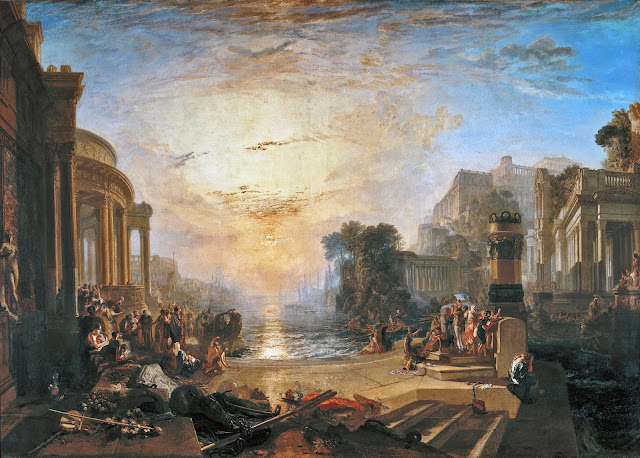Here are three talks on international politics. Very interesting
Here are three talks on international politics. Very interesting
 |
After the death of the Roman Emperor, Marcus Arealius,180 AD, his son, Cammodus, inherited the throne. Commodus was not a stable person. One good thing he did was he temporarily halted Christian persecution. While his father never ordered a direct persecution of Christians, he did allow it to happen– usually by local rulers. Commodus’ leniency resulted in the release of Christians from the mines in Sardinia, among whom was a future pope.
Cassius Dio, a first-hand witness, describes Emperor Commodus as: "not naturally wicked but, on the contrary, as guileless as any man that ever lived. His great simplicity, however, together with his cowardice, made him the slave of his companions, and it was through them that he at first, out of ignorance, missed the better [virtuous] life and then was led on into lustful and cruel habits, which soon became second nature."
Technical terms were still being developed when the New Testament was being written, and defined later for precision. For example The word for priest derives from the Greek presbyteros, which means elder or senior, although in the early Christian presbyteros could refer to a bishop or a priest. The English word "priest" is a derivative of the word presbyter.
The word ‘catholic’ itself is not found in the Bible. However “KAΘ OΛHC” (pronounced as ‘kath oles’) is found in the of Acts 9:31.
A
three word phrase from Acts 9:31 is “EKKΛHCIAI KAΘ OΛHC” (pronounced as
“ekklesiai kath oles”) which is Koine Greek for “church all over” or
“church universal.” Swap those words around and you get “universal
church.” This is exactly what the word Catholic means, the Universal
Church, i.e The Catholic Church. We will cover this more below.
While of course this reference isn't definitive but is does circumstantially point to the origins of the term "Catholic" for the true Church.

We have already heard of St. Irenaeus. He had traveled to Rome, with St. Polycarp, to discuss the date of Easter with the pope. This has been a debate between the western Church and the eastern Church. Both have good reasons for celebrating Easter at different dates.
The problem was resolved with a compromise– the western Church would continue their tradition of celebrating Easter always on a Sunday, and the eastern Church would continue their tradition of celebrating it on the date according to their calendar.

By drawing from Scripture and the teachings of Scott Hahn and the St. Paul Center The Catholic priesthood did not emerge in a vacuum. Roote...